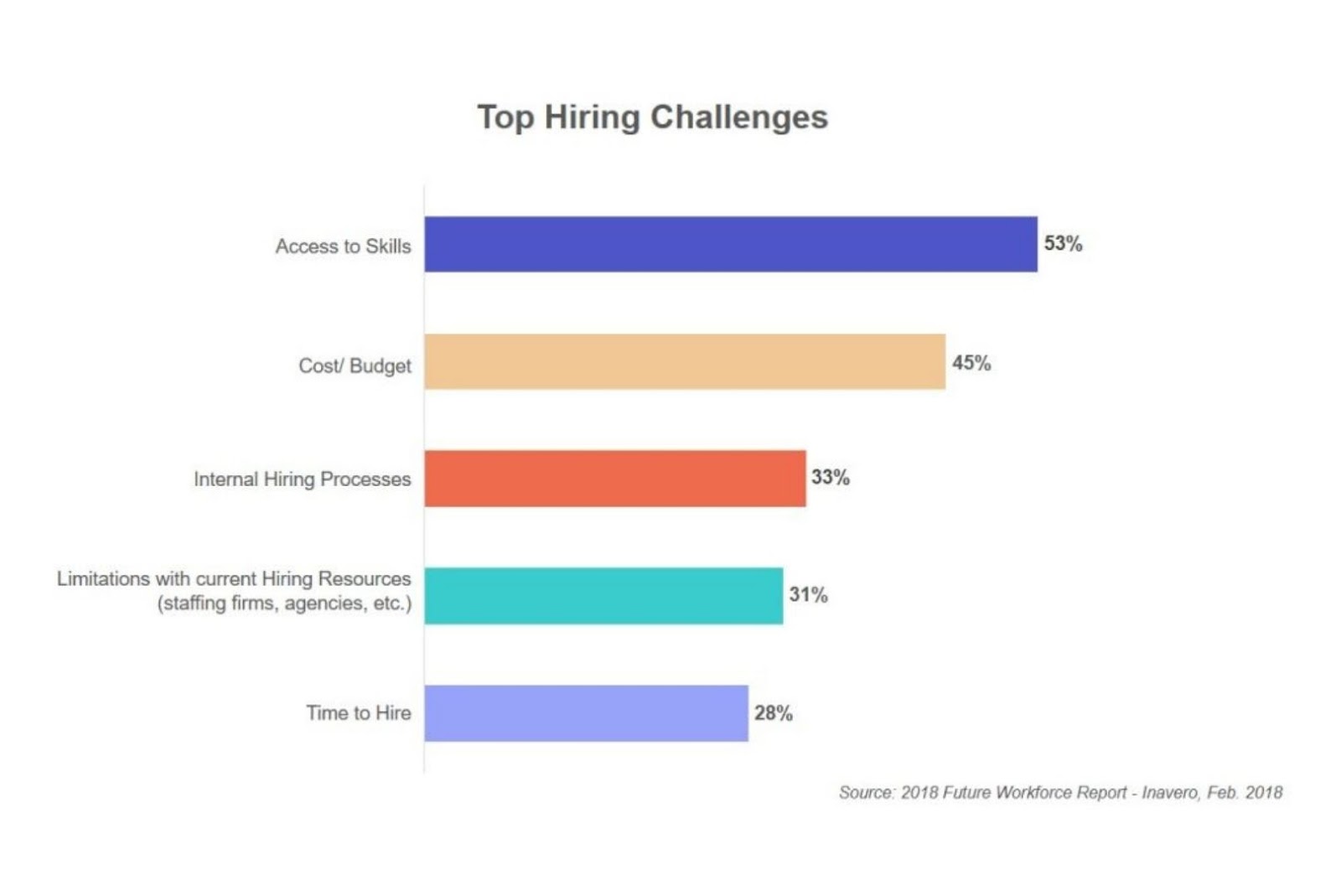
Writing a creative brief can be a daunting task. Your client's vision must be translated and you should avoid unnecessary jargon. It is important that your creative brief be clear, simple, understandable and concise so that clients can benefit from it. However, it should not be a complete solution, but a starting point that challenges the design team to think creatively. It should contain a brief that is carefully written and creatively crafted in order to solve the client’s problem.
Create a key benefit for consumers (KCB).
The creative brief can help you focus your marketing efforts. A key consumer benefit can be a feature, a benefit, or an outcome that the audience would like to achieve. The ultimate goal of any project or the feeling you want your audience have after using a product/service is a key benefit or pain point.
Make sure you analyze your competition's products and target audiences when developing a creative short. This information will allow you to narrow your focus and determine your company's niche in the marketplace. Create a KCB (key message) that clearly explains the solution the product or service offers to consumers. Be sure to include testimonials or narratives in the creative short.

Include deliverable dates
Remember to include deliverable dates and deadlines when writing a creative short. This will help avoid confusion later. Include brand guidelines and internal messaging. The more details you provide, the better your creative team will be able to accomplish your objective. You should include the deadline and any revisions or approvals that you require. Remember to add the delivery dates for each stage.
A description of the target audience, your competition and the market you are operating in should be included. It is important to provide a brief description that is concise and includes your company's branding messages. It will be easier to avoid making endless revisions by having a concise creative brief. This will enable your agency to be as precise as possible with the information that you provide.
Include brand guidelines
The best way to ensure that the work produced is in line with the brand's values and tone is to include brand guidelines in your creative brief. These guidelines help the designer understand the brand’s voice and vision so the work they create reflects that vision. Here are some ways to include brand guidelines within your creative brief. These guidelines will help you create your campaign short, which should contain the following five elements. Using these guidelines will ensure that no detail is left out of your creative brief.
While the creative brief should be comprehensive, it should not go into detail. The brief should contain a succinct overview of the brand, the target audience, and a single paragraph detailing the goals. It should include relevant background information, such as demographics and target audience. The brief should include any background information about the brand that the creative team doesn't already have. They should be able catch up and complete the project. Moreover, the creative brief should include the brand guidelines and the deliverables of the project.

Include client's voice
Incorporate your clients' voices when you create creative briefs. This is often the most difficult part. The creative brief can often be overwhelming due to the amount of information that is required. Here are five reasons projects often fail. Not all of these reasons are due to the creative brief itself, but they are all related to a conflict over the project's creative elements. Here are some ways to make your brief appealing to clients.
The brief should include the key elements of each project. Include your client's voice and style, as this will inform your work. Include demographic information and behavioral insights about the target audience. This will enable your team to develop a solid content strategy. Your messaging must be persuasive and motivate your target audience to take action. The creative brief should include the client's voice and tone.
FAQ
What is the difference between consulting and freelancing?
Freelancers work as independent contractors and offer their services without the assistance of an agency or company. They charge hourly rates depending on the amount of time spent on a client's projects. Consultants typically work for agencies and companies that employ them. Their salaries are usually paid monthly or annually.
Because they set their own hours and prices, freelancers are often more flexible than consultants. However, consultants often have better benefits, such as health insurance, vacation days, sick leave, retirement plans, etc.
Do I need to pay tax on consulting income?
Yes, tax will be payable on any consultancy profits. The amount depends on how much you earn per year.
If you're self employed, you can deduct expenses beyond your salary.
However, you can't deduct interest payments for loans, vehicle depreciation or the cost to purchase equipment.
You cannot claim back less than PS10,000 in a given year.
However, even if your earnings exceed this threshold you may still be subject to tax depending on whether or not you are a contractor or an employee.
Employers are taxed via PAYE (pay as your earn), and contractors through VAT.
What types of jobs are available as a consultant?
Consulting requires an in-depth understanding of operations and business strategy. It is important to understand the workings of businesses and how they fit into society.
You must have excellent communication skills as well as the ability to think critically in order to be a consultant.
Because they might be required to complete different tasks at different times, consultants must be flexible. They must be flexible and able to change directions quickly if needed.
They must be willing to travel for their clients. This type of work can take you all around the globe.
They need to be able and able to manage pressure and stress. Sometimes consultants are required to meet tight deadlines.
Consultants might be required to work long hours. This means that you may not always get paid overtime rates.
How do you start an LLC consultancy company?
You must first figure out what you want to do as a service provider. The next step is to ensure that you're qualified for the services you offer. It may be a good idea to seek out someone who offers the services you need and observe their work.
Once you have an idea of the content you want, you can then determine where your target audience is. If they don't exist, you might have to make them.
You must then decide whether you want your business to be run by you or hired others.
A license from the state could be required to start your own consulting business. However, this can take some time and require legal fees.
Who hires consultants
Many organizations hire consultants to assist with projects. This includes small businesses, large corporations and government agencies.
These consultants may work directly for the organization, or freelance. The hiring process will vary depending on the complexity and size of the project.
There will be many rounds of interviews for consultants when you are looking to hire. Only then can you select the right person to fill the position.
Statistics
- On average, your program increases the sales team's performance by 33%. (consultingsuccess.com)
- 67% of consultants start their consulting businesses after quitting their jobs, while 33% start while they're still at their jobs. (consultingsuccess.com)
- Over 62% of consultants were dissatisfied with their former jobs before starting their consulting business. (consultingsuccess.com)
- My 10 years of experience and 6-step program have helped over 20 clients boost their sales by an average of 33% in 6 months. (consultingsuccess.com)
- Over 50% of consultants get their first consulting client through a referral from their network. (consultingsuccess.com)
External Links
How To
How Do I Find A Good Consultant?
Finding a great consultant starts with understanding your expectations. Do you want them help improve your website's efficiency? Do you need them to optimize your site so that it ranks higher in search engines' results? Maybe you are looking for someone to point out any problems with your current web host. You should know the type of services that you require before you start looking at other companies. Although there are many consultants who claim to offer these services, very few of them can actually provide the required results. So how do you go about choosing one? Here are some considerations when choosing a consultant.
-
Refer to others. This is probably the best way to choose a consultant. It's not a good idea to hire someone you haven't heard of, as you will likely end up paying too much. You also don't want someone with a poor reputation to work for you. If you are lucky enough to be referred by people you trust, that's awesome! You can check online reviews even if they don't refer you. Look for testimonials and case studies where clients have used your service.
-
Ask around. Many people aren't aware that they could benefit from hiring a consultant. They think that since they're currently doing fine, they don't need to make changes. This is often false. Even if your results are great, there's a good chance that you haven’t kept up with the latest trends and technologies. And if you're relying on outdated methods, you'll miss out on opportunities to grow your business. It's always worth asking for referrals to find good consultants.
-
Be sure to check their credentials. It doesn't matter if you are looking for a consultant to help you build a blog or launch a multimillion-dollar eCommerce site, you need to make sure they have the right skills to manage your project. Make sure that they're qualified to perform the tasks you need to be done and that they have sufficient expertise in the area.
-
Find out what type of projects they are skilled in. Although it might seem like everyone can do everything, this is not true. Certain areas may require special training or education. For example, if you need someone to build a WordPress theme, you won't want to hire a developer who specializes in Drupal. It is the same for programming languages, graphic design, and so on. It is important to inquire about the types of projects that they work on.
-
It is important to know what the charges are. As we mentioned, it is important to know what they charge. You also don’t want to spend too little. Consultants come in all shapes and sizes. While some consultants charge an hourly rate, others bill per project. This will help you save money in the long-term.
-
Understand what they offer. Do they offer free consultations? Do they offer advice on setting up your system? Are they able to guarantee that your site will rank better after working with you? If you don’t like the information you receive during your consultation, you can cancel it without penalty.
-
Finally, find out if they offer discounts for multiple months or years. Many consultants offer discounted pricing for extended periods of time. It is not necessary to commit to an entire year. However, you could still benefit from any deals offered by the consultants.